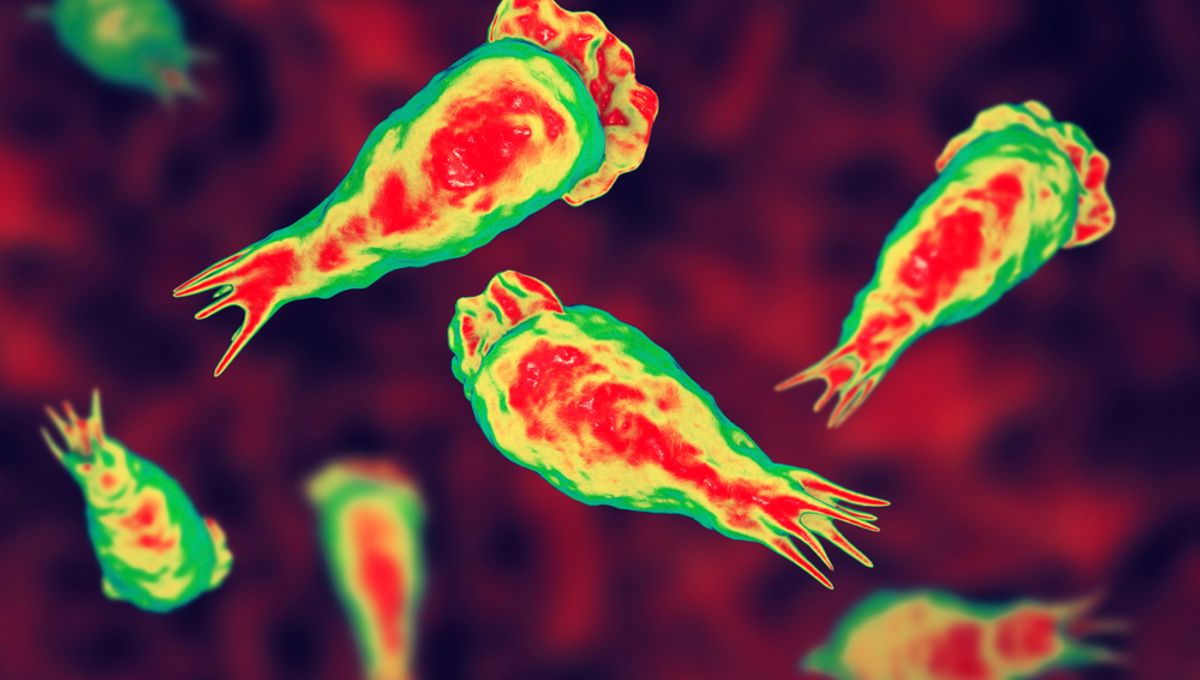
A person in Florida has died after being infected with a rare brain-eating amoeba. Health authorities suspect the person fell ill with the fatal infection after using tap water to rinse their sinuses, although they stressed that you cannot be infected by drinking tap water.
The Florida Department of Health in Charlotte County announced the case on February 23 to alert the public to the risk of the rare infection.
The deadly illness was caused by a microscopic single-celled amoeba called Naegleria fowleri. It is free-living and naturally dwells in warm freshwater sources, like hot springs, lakes, and rivers, as well as untreated swimming pools. As this recent case shows, it can also crop up in tap water supplies too.
Thankfully, you can’t get sick by drinking infected water as the amoeba generally enters the human body through the nose. At the top of a nostril, it’s a short journey to the brain where N. fowleri feeds on tissue and neurotransmitters. This triggers an immune response from the body causing the brain to swell, fatally damaging the organ.
The resulting illness is called primary amoebic meningoencephalitis (PAM) and involves a host of unpleasant symptoms such as headache, fever, nausea, vomiting, a stiff neck, confusion, hallucinations, and seizures.
It is relatively rare and has infected 157 people in the US since 1962, according to the Centers for Disease Control and Prevention (CDC). Cases are higher in southern states, notably California, Arizona, Texas, Florida, and South Carolina, although there is evidence that cases of the brain-eating amoeba are spreading north.
This infection is almost always fatal – just four people in the US have survived the illness – so prevention is key.
Charlotte County health authorities advised residents to not allow water to go up their noses or sniff water into their noses when bathing, showering, washing their face, or swimming. Kids should not be allowed to play unsupervised with hoses or sprinklers, they added, because water can easily become squirted up their noses.
Sinus rinses, where water is aggressively pumped up the nose to flush out lurgies, are also a big risk if using tap water that hasn’t been boiled for at least one minute and cooled.
Freshwater swimming is another common way in which the infection arises. So, if you decide to take the plunge into a warm river or lake, be sure to wear a nose plug.
“Though the risk is low, people should always assume there is a risk for infection whenever entering warm fresh water. In the United States, most infections have been linked to swimming in southern states, like Florida and Texas,” the CDC say on their website.
“Behaviors associated with the infection include diving or jumping into the water, putting the head under water, or engaging in other activities that cause water to go up the nose. Since the amebae are more likely to live in the sediment at the bottom of lakes, ponds, or rivers, swimmers should also avoid digging or stirring up the sediment,” they added.
Source Link: Snorted Tap Water May Be Blamed For Brain-Eating Amoeba Death In US